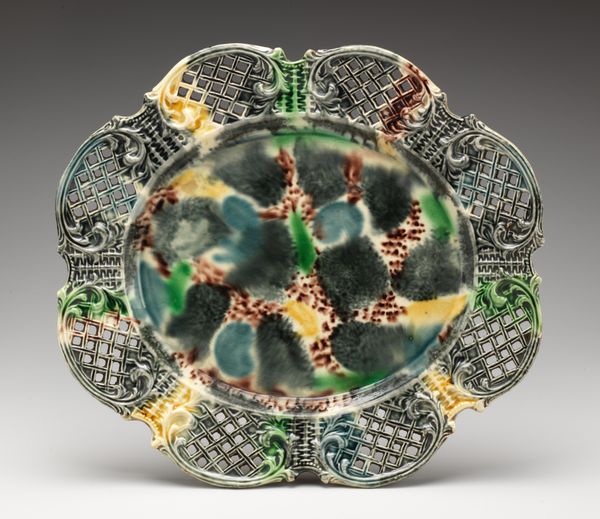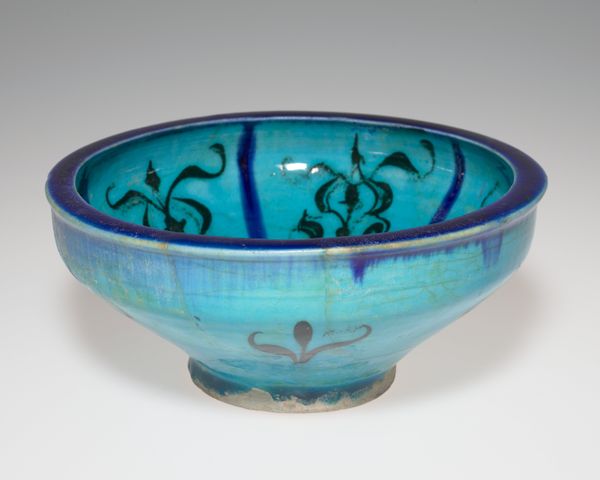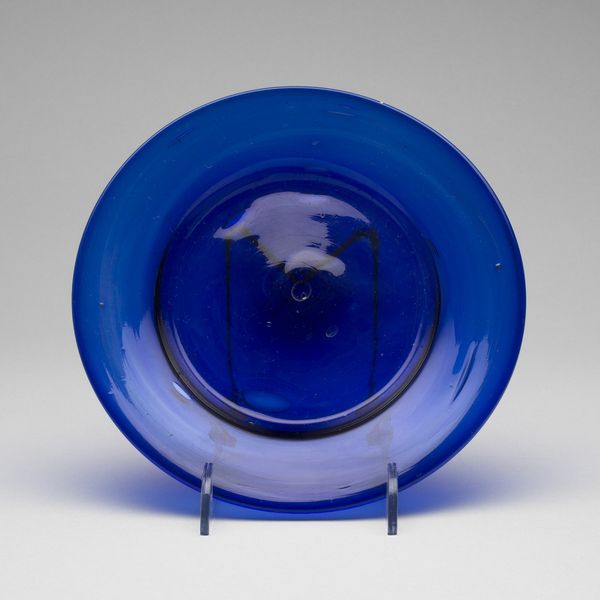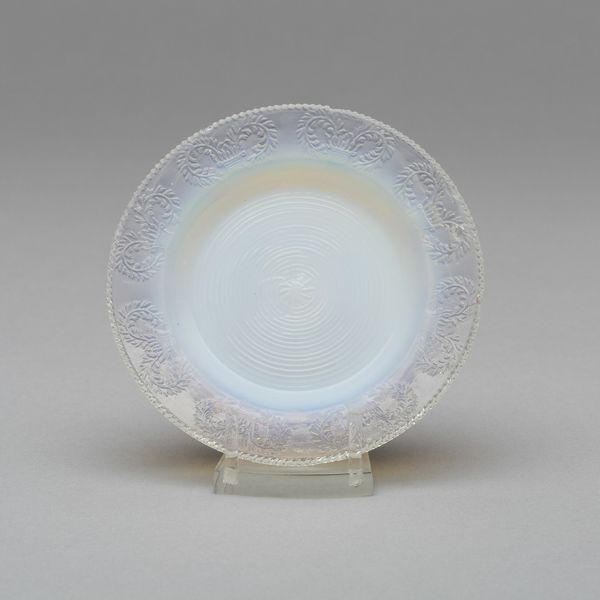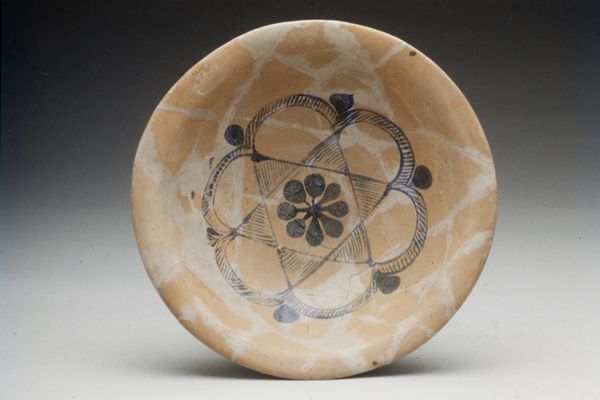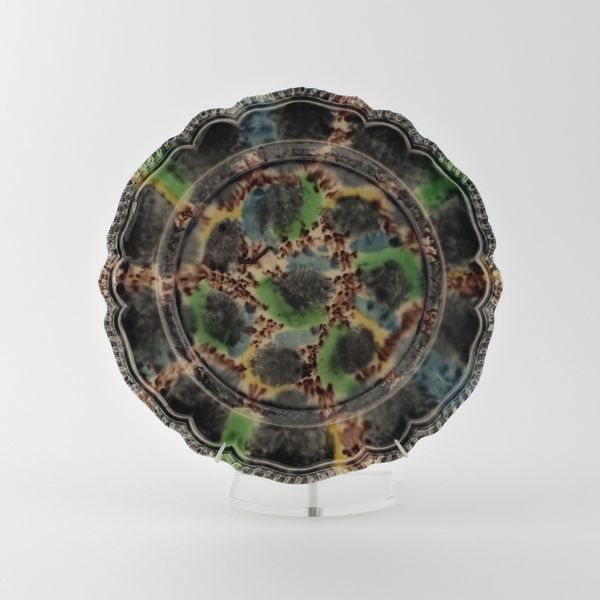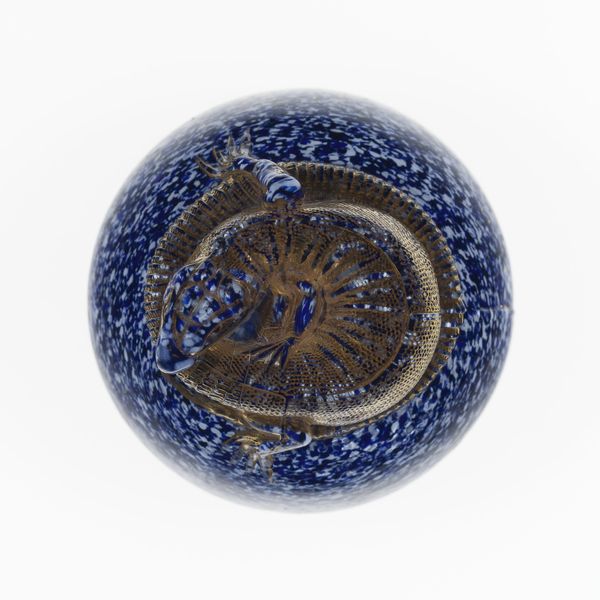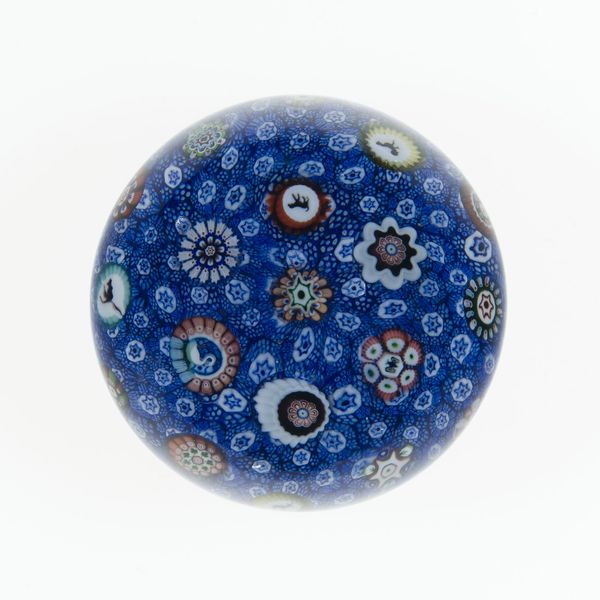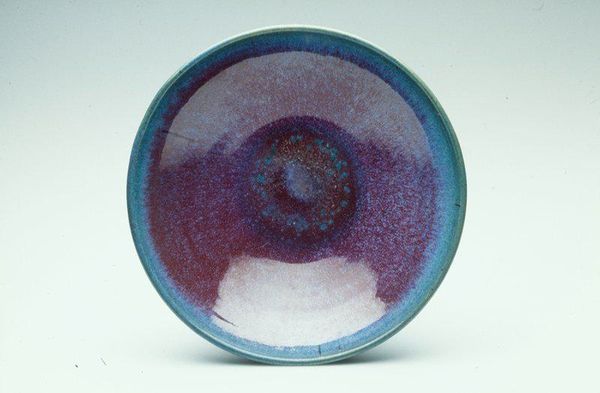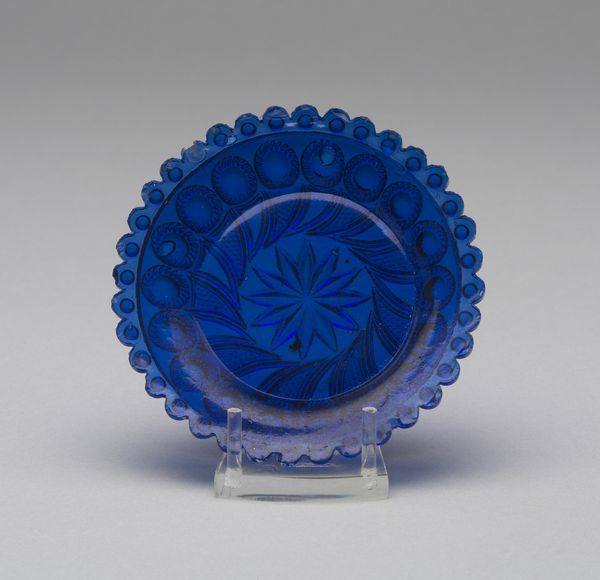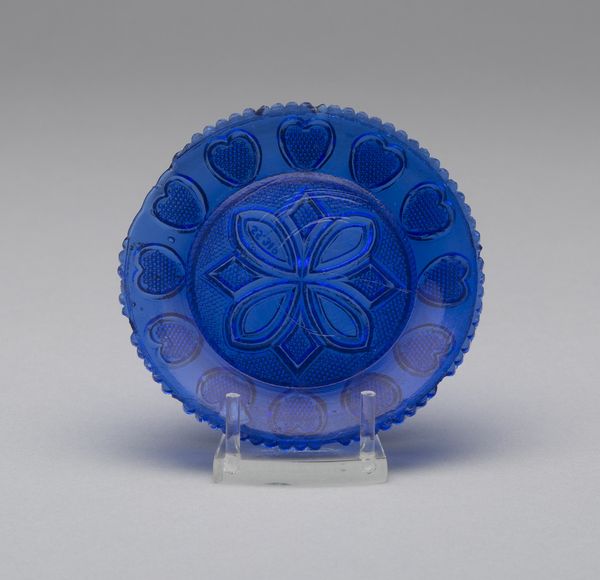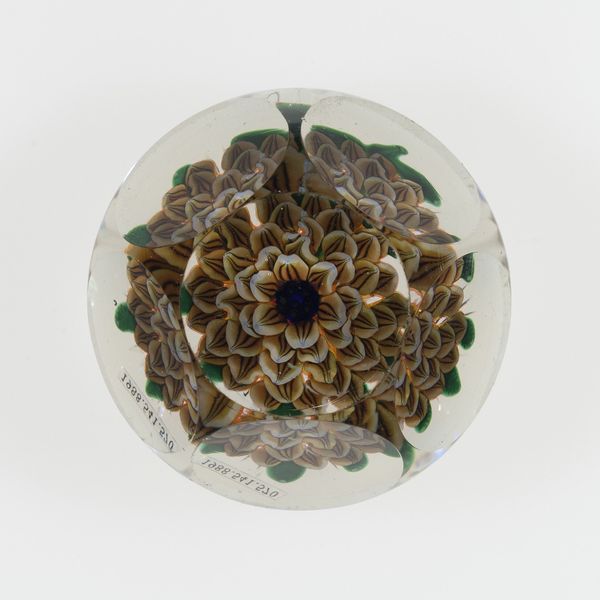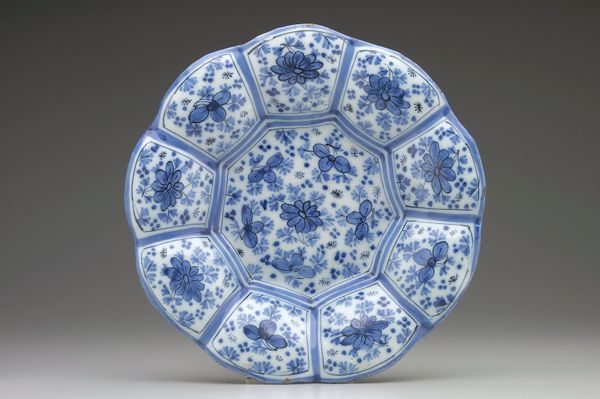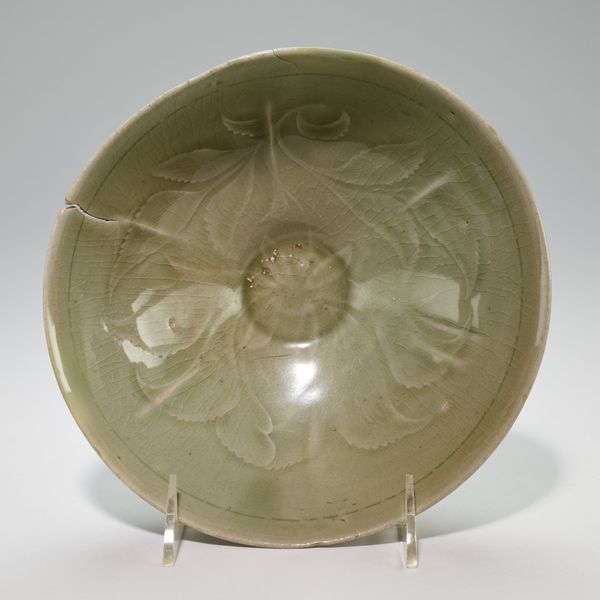
ceramic
#
medieval
#
ceramic
#
geometric
#
ceramic
#
islamic-art
#
decorative-art
Dimensions: 3 3/8 x 8 in. (8.57 x 20.32 cm)
Copyright: Public Domain
This bowl, of unknown origin and maker, invites us to explore its intricate design. The bowl presents a mesmerizing array of dark blue hues, contrasted by the light turquoise decoration. The composition is structured around a radial symmetry, emanating from a central point. Lines divide the surface, creating a series of panels filled with organic motifs. The artist employs repetition, with each panel mirroring its counterpart. This imbues the bowl with a rhythmic quality, reflecting an aesthetic that values order and harmony. This bowl seems to express a dialogue between structure and nature. The geometric layout provides a rigid framework, within which floral and vine-like forms flourish. The texture of the glaze, with its fine crazing, suggests the passage of time. These elements work together, creating a sense of depth and history. This bowl is not merely a vessel, it is an artifact expressing humanity.
Comments
minneapolisinstituteofart about 2 years ago
⋮
The Seljuk period (1038-1194) was perhaps the most creative era in the production of Persian ceramics. In addition to lusterware, minai ware, and monochromatic blue glaze, underglaze-painted ceramics were also produced. These bowls represent one popular variant, black designs under a transparent turquoise glaze.
Join the conversation
Join millions of artists and users on Artera today and experience the ultimate creative platform.
